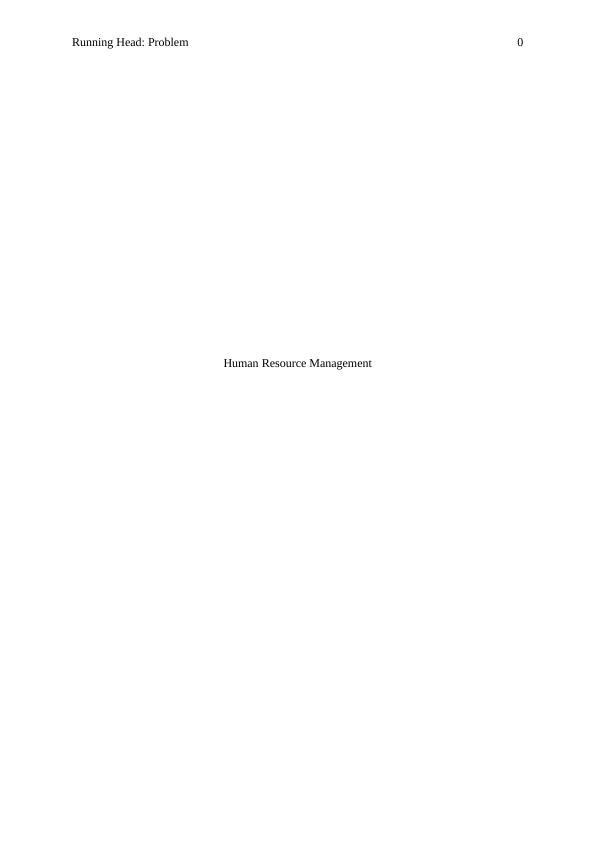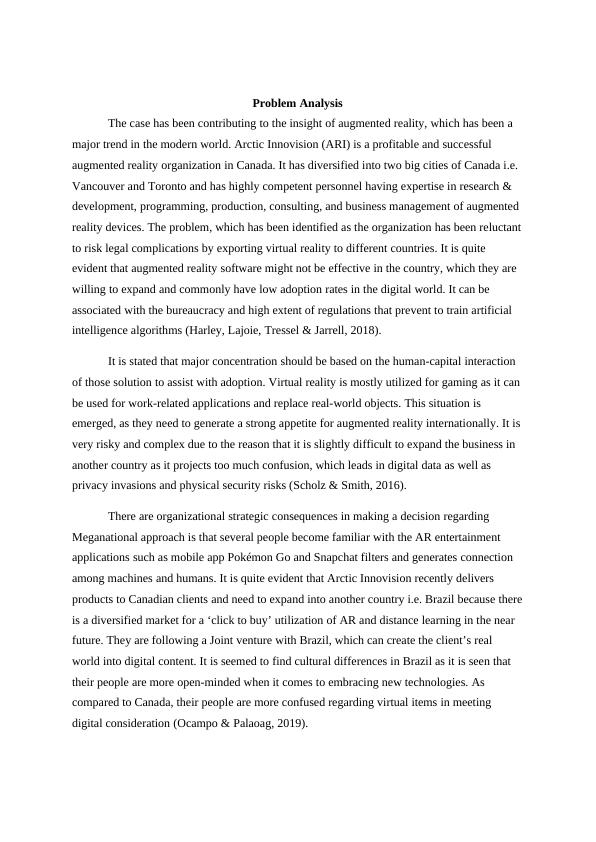Problem Analysis
Brief summary of the case - but no analysis
4 Pages753 Words91 Views
Added on 2023-03-20
About This Document
This case study analyzes the problem of Arctic Innovision (ARI) in expanding their augmented reality business internationally and the strategic consequences of their decision. It discusses the cultural differences between Canada and Brazil and the policy implications for maintaining and growing the business.
Problem Analysis
Brief summary of the case - but no analysis
Added on 2023-03-20
ShareRelated Documents
End of preview
Want to access all the pages? Upload your documents or become a member.
ARCTIC INNOVISION CASE
|13
|3280
|36
Marketing Plan for Amazon's VR Set: A Detailed Analysis
|4
|881
|333


